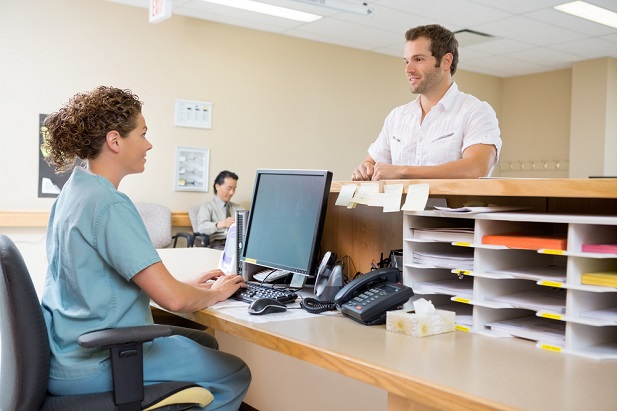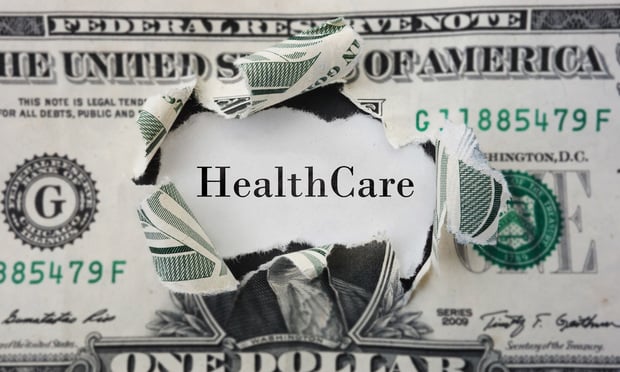 Nearly two-thirdsof millennials say health care costs are a significant source ofstress and has led many to skip coverage or avoid health careservices.
Nearly two-thirdsof millennials say health care costs are a significant source ofstress and has led many to skip coverage or avoid health careservices.
Millennials are just not that into their parent's health caresystem, a new study from the Transamerica Center forHealth Studies (TCHS) finds. The study looks at millennials'attitudes towards traditional health delivery systems and findsdissatisfaction and a hunger for new solutions that fit theirdigital lifestyle.
|The TCHS report notes that millennials are overtaking babyboomers as the largest generation in the U.S., and says theirattitudes are changing the way health care is delivered in theU.S.
|Related: Why millennials are skipping out on primarycare
|“Millennials represent a massive working, spending, and votingblock with far-reaching economic and public policy implications,”the report said. “They are the first generation of digital natives,with boundless information and consumer power at their fingertips.They are not beholden to their predecessors in how they exercisetheir consumer power, especially when it comes to health care.”
|Financial, coverage issues are timeless
The one thing younger Americans share with their parents? Healthcare stresses them out. The study notes that younger Americans havecome of age with a load of student and credit card debt hanging over theirhead, so health care costs are very much a concern for them. Nearlytwo-thirds (63 percent) of millennials say health care costs are asignificant source of stress. “One in five millennials say theycannot afford routine health care expenses,” the report found.“Millennials and Generation X (both 18 percent) have a morechallenging time affording prescription drugs, compared with babyboomers (13 percent).”
|The financial instability of younger Americans has led to someof them skipping coverage. Of the 16 percent of millennials who saythey are uninsured, 60 percent said that they can't affordcoverage. Eleven percent said that they don't have time to acquirecoverage.
|Unhappy with the system, keeping an eye on politics
According to the survey, millennials are more likely than othergenerations to express dissatisfaction with the health care system:21 percent say they are “not at all” or “not very” satisfied withthe quality of health care they can access. And the researchersadded that their dissatisfaction that has increased since 2016.
|That dissatisfaction may be expressed at the ballot box, theresearch suggests. While only 20 percent of Gen Y and Baby Boomersexpressed concern with health care policy changes on the federallevel, 30 percent of millennials said they are “extremely” or“very” aware of federal health care policy changes. They toldsurveyors that their biggest policy-related fear, at 29 percent, islosing health coverage because of a pre-existing condition.
|Unhappy consumers=unhealthy behaviors
One of the most concerning findings of the survey is thatmillennials are visiting health care providers less frequently thanother generations. Along with saying they can't afford some healthcare expenses, millennials reported visiting their provider'soffice less often—32 percent with no visits, versus 31 percent ofGen Z, 27 percent of Gen X, and 19 percent of Boomers.
|Avoiding provider visits might be pushing millennials to gatherhealth information online, which has both good and bad outcomes.The study notes that millennials are very comfortable with digitalresources, but this puts them at risk of getting unreliableinformation from dubious sources. The recent measles outbreaks stemming from a lackof vaccinations may be an example of Americans getting “fake”medical news.
|“Millennials use online resources more often than seekingexpertise from physicians, nurses, and other health careprofessionals,” said Hector De La Torre, executive director ofTCHS. “An overdependence on the Internet can be harmful—both inmisinformation and misinterpreted information. Every patient isdifferent, so millennials should not rely solely on generic outsideinformation.”
|Read more:
Complete your profile to continue reading and get FREE access to BenefitsPRO, part of your ALM digital membership.
Your access to unlimited BenefitsPRO content isn’t changing.
Once you are an ALM digital member, you’ll receive:
- Critical BenefitsPRO information including cutting edge post-reform success strategies, access to educational webcasts and videos, resources from industry leaders, and informative Newsletters.
- Exclusive discounts on ALM, BenefitsPRO magazine and BenefitsPRO.com events
- Access to other award-winning ALM websites including ThinkAdvisor.com and Law.com
Already have an account? Sign In
© 2024 ALM Global, LLC, All Rights Reserved. Request academic re-use from www.copyright.com. All other uses, submit a request to [email protected]. For more information visit Asset & Logo Licensing.








